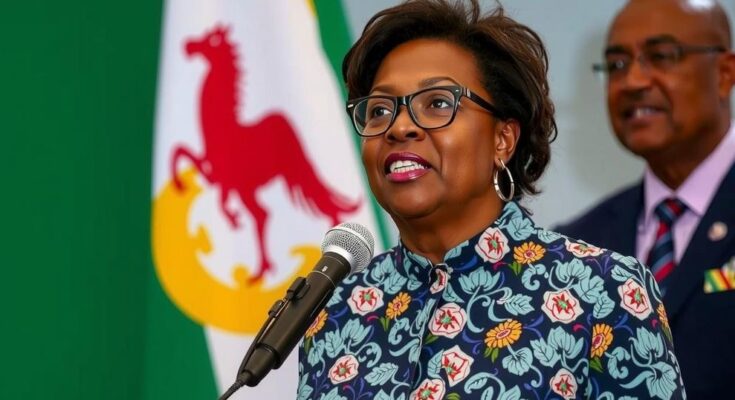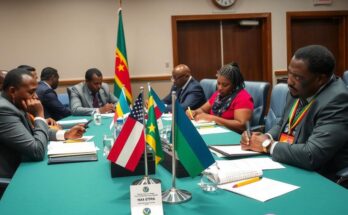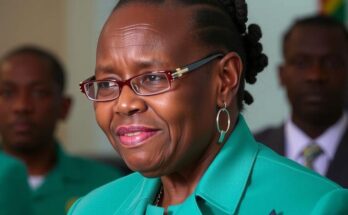Namibia’s presidential election has begun with Vice President Netumbo Nandi-Ndaitwah leading amidst serious technical issues that forced a three-day voting extension. The opposition claims the extensions were illegal and plans to challenge the results in court. Only a fraction of the votes has been counted, with opposition parties expressing dissatisfaction and highlighting the need for democratic integrity in light of high unemployment and corruption concerns affecting the ruling party.
Namibia’s presidential election has seen the ruling party’s candidate, Vice President Netumbo Nandi-Ndaitwah, leading in early results marked by significant technical difficulties. The election extended over three days due to issues including a lack of ballot papers, which visibly disrupted the voting process. The opposition has raised concerns about the legality of extending the voting period and indicates intentions to contest the election results in court. With approximately 220,000 of the 1.4 million votes counted, Nandi-Ndaitwah has garnered roughly 56% of the votes, while opposition leader Panduleni Itula trails at 27%. The political landscape in Namibia is fraught with dissatisfaction as SWAPO, the ruling party since independence, faces economic challenges and accusations of corruption, particularly amid high unemployment levels affecting the youth. Opposition parties have declared their intent to legally challenge the election results, emphasizing the importance of safeguarding democratic principles in the country. Public sentiment is reminiscent of regional discontent with other long-ruling parties like those in South Africa and Botswana, illustrating a widespread demand for change across southern Africa’s political framework.
The country of Namibia has experienced a relatively stable democratic environment since its independence from apartheid South Africa in 1990, with the SWAPO party as the dominant ruling faction. However, recent elections have been marred by significant technical difficulties that have led to widespread dissent among opposition parties. As Namibia grapples with economic struggles, accusations of government corruption have further engendered public discontent, especially among the youth. The current presidential election has drawn attention not only for the potential historical ascent of Nandi-Ndaitwah as the first female leader but also for the significant opposition backlash challenging the integrity of the electoral process.
The unfolding situation in Namibia illustrates the intersection of political aspirations and public dissatisfaction within the nation’s electoral landscape. Vice President Nandi-Ndaitwah’s lead amidst significant technical complications highlights the challenges that democratic institutions face. As the opposition plans to contest the election results, the outcome may redefine Namibia’s political future, reflecting broader regional trends of discontent with long-standing ruling parties. The actions taken in the coming days will be pivotal for upholding Namibia’s democratic integrity.
Original Source: abcnews.go.com




